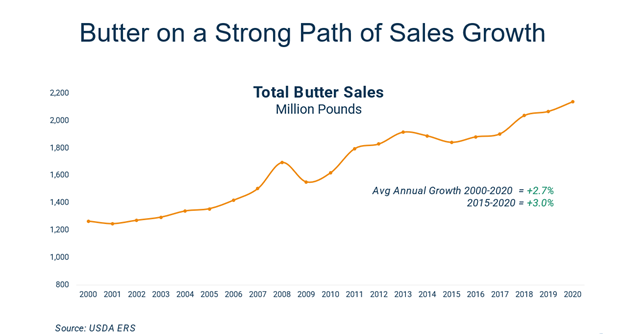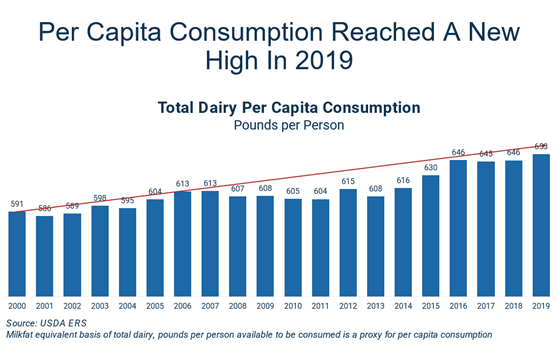Dairy farmers welcomed assistance from USDA in August via the new Dairy Donation Program, which NMPF championed through the legislative process; adjustments to the Dairy Margin Coverage program; and the new Pandemic Market Volatility Assistance Program, which will partially reimburse farmers for losses that arose from how the department approached dairy purchases for food-insecure families in 2020. These initiatives will help farmers during difficult times, and they happened because NMPF worked closely with USDA and Congress to help dairy farmers better manage their risks and serve their communities.
That doesn’t mean our work is over – especially on the pandemic market program. The $350 million in reimbursements is a partial balm that begins to redress policies that created unintended harm. But it isn’t a fair deal for all dairy farmers. NMPF is committed to lead efforts for fairness on behalf of our members.
Some background: USDA’s new program attempts to rectify two policy actions that left many in dairy on the wrong end of unplanned consequences. The immediate trigger was government food-box program purchases that were heavily weighted toward cheese. That over-emphasis sent Class III cheese prices to all-time highs and caused unusual and uneven impacts on milk checks, most commonly noticed via the record negative Producer Price Differentials (PPDs) seen during the pandemic.
The other culprit was an attempted good-faith policy change that inadvertently became a ticking time bomb, exploded by those same milk-price gyrations. A change to the Class I mover formula, which sets the price of Class I fluid milk, in the 2018 farm bill was originally proposed as a revenue-neutral adjustment designed to encourage increased fluid milk sales without hurting farmers. It turned out to be anything but that. Last year’s unprecedented discrepancies between Class III and Class IV prices, which are used to calculate the mover, pushed Class I skim milk prices dramatically lower than they would have been under the previous formula, leaving dairy farmers with roughly $750 million in losses.
At NMPF, we repeatedly urged the government to make more balanced purchases last year because we feared that unbalanced dairy-buying would wreak havoc on markets, as it did. Subsequently, when the effects of the new Class I mover formula became clear, we voiced support for an emergency Federal Milk Marketing Order hearing focused specifically on addressing the problem. We have held back on a formal hearing request, choosing instead to work with USDA toward creative solutions to more quickly assist producers, such as the new pandemic program. With USDA’s announcement – a milestone in the government’s response to the pandemic’s toll on dairy — it’s time to look at where we are, and where we need to go.
We are grateful that the department found a way to provide some relief, and that many members of Congress worked with us to advocate vocally for dairy farmers.
And while the program will help many producers, its lack of fairness is a major concern for NMPF and many of its members. The payment is calculated based on only 5 million pounds of milk per farm during the period of July-December 2020. That level is well below the production of thousands of dairy farms, meaning many family dairy farmers will only receive a portion of the losses they incurred. Losses were felt by producers of all sizes and in all regions: It was a disaster in the truest sense of the word. And like most other disaster programs, this one shouldn’t be subject to such arbitrary low limits on assistance. We are already working with allies in Congress to further supplement USDA’s already announced funding.
Meanwhile, we still need to address the risk imbalance in the current Class I mover formula that was exposed by the pandemic. The proposed adjustment to the mover NMPF developed last spring was designed to account for past losses and to restore needed balance for farmers going forward. The COVID-19 pandemic is (we hope) a once-in-a-lifetime occurrence. But as we can now see, a large spread between Class III and IV milk prices is not, making a Class I mover fix essential. Along with more fully recouping last year’s losses, we look forward to advancing positive solutions to this and other federal-order issues.
NMPF applauds USDA’s and Congress’s many crucial efforts for dairy. But fair is fair. As the advocate for U.S. dairy farmers, we’re leading the fight for fairness. Our efforts, along with those from our member-allies across the dairy farmer community, have already yielded a lot. And they’re far from over.








